When it comes to nutrition, is black the new green? To reap nutritional benefits and antioxidants you don’t want to miss, add these black superfoods to your diet.
By Marie Suszynski
Medically reviewed by Niya Jones MD, MPH
When it comes to a balanced diet, you’ve most likely been taught to eat foods of all different colors. And when you’re eating fruits and veggies like purple potatoes, red pomegranates, and orange papayas, that’s generally true — the richer the color, the bigger the dose of cancer and disease-fighting phytochemicals.
But what about foods on the extreme side of the color spectrum: black foods? Although black might not seem like the healthiest color on the planet, dark-hued foods have been hailed as the newest superfoods because of their high levels of various antioxidants, compounds that protect against a number of diseases, including heart disease and cancer. You should still eat bright fruits and vegetables, but adding in black foods that pack a nutritional punch — like blackberries, black beans, and black soybeans — can give you an unexpected health boost, too.
Black Beans
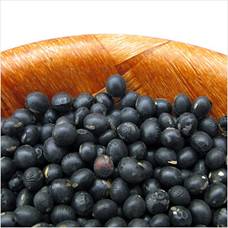 Black beans should be part of every diet. They’re healthy foods that help prevent cancer because they’re filled with phytochemicals that protect your cells from damage — and black beans are thought to be even more packed with antioxidants than other varieties. Beans are also full of fiber, which has been found to lower the risk for colorectal cancer. A recent study at the Harvard School for Public Health even found that eating more beans and less rice can lower diabetes risk by as much as 35 percent.
Black beans should be part of every diet. They’re healthy foods that help prevent cancer because they’re filled with phytochemicals that protect your cells from damage — and black beans are thought to be even more packed with antioxidants than other varieties. Beans are also full of fiber, which has been found to lower the risk for colorectal cancer. A recent study at the Harvard School for Public Health even found that eating more beans and less rice can lower diabetes risk by as much as 35 percent.
Luckily, black beans are easy to add to your diet. Kathy Allen, RD, director of the department of nutrition at Moffitt Cancer Center in Tampa, Fla., recommends a great option for an easy dinner: Buy seasoned black beans in a can and mix them with long-grain brown rice. “It’s one of the healthiest, cheapest, and fastest meals,” she says. You can also add black beans to salads, chili, soups, tacos, or burritos.
Blackberries
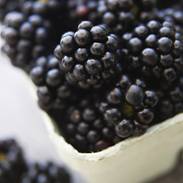 Sprinkle blackberries on your cereal, add them to Greek yogurt, or fold them into whole-wheat waffle batter, and you’ll get a helping of polyphenols, an antioxidant that helps lower inflammation. Because they’re low in calories, blackberries are the perfect diet addition, and they might even boost your brain health. When researchers from the Human Nutrition Research Center on Aging at Tufts University fed older rats a blackberry-supplemented diet for eight weeks, the rats had better balance, coordination, and short-term memory than rats that were not fed blackberries.
Sprinkle blackberries on your cereal, add them to Greek yogurt, or fold them into whole-wheat waffle batter, and you’ll get a helping of polyphenols, an antioxidant that helps lower inflammation. Because they’re low in calories, blackberries are the perfect diet addition, and they might even boost your brain health. When researchers from the Human Nutrition Research Center on Aging at Tufts University fed older rats a blackberry-supplemented diet for eight weeks, the rats had better balance, coordination, and short-term memory than rats that were not fed blackberries.
Black Soybeans
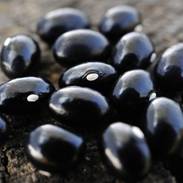 Edamame (green soybeans) may be all the rage, but there are a variety of soybeans that may please your palate, including black soybeans, Allen says. Soybeans offer isoflavones, saponins, phytosterols, and other active ingredients that help fight cancer. Studies have also found that having this healthy food in your diet is good for your heart. In one South Korean study, researchers found that black soybean extract helped improve blood circulation and lowered the risk for cardiovascular problems.
Edamame (green soybeans) may be all the rage, but there are a variety of soybeans that may please your palate, including black soybeans, Allen says. Soybeans offer isoflavones, saponins, phytosterols, and other active ingredients that help fight cancer. Studies have also found that having this healthy food in your diet is good for your heart. In one South Korean study, researchers found that black soybean extract helped improve blood circulation and lowered the risk for cardiovascular problems.
Black Lentils
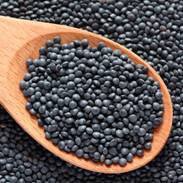 Nutritionally, there’s not much of a difference between black lentils, green lentils, or brown lentils, Allen notes, but they may offer some variety to your diet. Whatever the color, lentils offer plenty of dietary fiber, and studies have found that diets rich in fiber can help lower cholesterol. You can replace ground meat in meatloaf and chili with lentils, eat them over rice with a tomato sauce, or add them cold to salads, Allen suggests.
Nutritionally, there’s not much of a difference between black lentils, green lentils, or brown lentils, Allen notes, but they may offer some variety to your diet. Whatever the color, lentils offer plenty of dietary fiber, and studies have found that diets rich in fiber can help lower cholesterol. You can replace ground meat in meatloaf and chili with lentils, eat them over rice with a tomato sauce, or add them cold to salads, Allen suggests.
Black Mushrooms
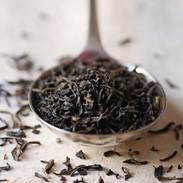 Most varieties of mushrooms are beneficial and contain cancer-fighting properties. Flavorful shiitake mushrooms, which are sometimes called black mushrooms, will help diversify your diet. In one study of 362 women, researchers concluded that eating mushrooms may lower risk of breast cancer for women after menopause. “Try a variety [of mushrooms] because they all have different flavors and textures,” Allen says. Add them to a salad, put them in a stir-fry, grill, or roast them. Because they have a mild flavor, they’re also great in combination with other foods, such as in chili or soup.
Most varieties of mushrooms are beneficial and contain cancer-fighting properties. Flavorful shiitake mushrooms, which are sometimes called black mushrooms, will help diversify your diet. In one study of 362 women, researchers concluded that eating mushrooms may lower risk of breast cancer for women after menopause. “Try a variety [of mushrooms] because they all have different flavors and textures,” Allen says. Add them to a salad, put them in a stir-fry, grill, or roast them. Because they have a mild flavor, they’re also great in combination with other foods, such as in chili or soup.
Black Tea
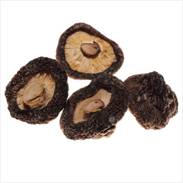 A study from the Boston University School of Medicine found that people who have heart disease and drink black tea have healthier blood vesselsthan people with heart disease who do not drink tea. Additionally, studies have found that drinking black tea may help lower the risk of a heart attack or stroke. Researchers think that tea’s flavonoids offer protection, and help to prevent the formation of plaques or blockages in artery walls. If you’re looking for ways to drink more tea, swap your morning coffee for black tea, or drink green, white, or black tea in place of sugary sodas.
A study from the Boston University School of Medicine found that people who have heart disease and drink black tea have healthier blood vesselsthan people with heart disease who do not drink tea. Additionally, studies have found that drinking black tea may help lower the risk of a heart attack or stroke. Researchers think that tea’s flavonoids offer protection, and help to prevent the formation of plaques or blockages in artery walls. If you’re looking for ways to drink more tea, swap your morning coffee for black tea, or drink green, white, or black tea in place of sugary sodas.
Black Rice
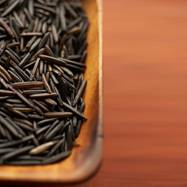 The next time you sit down to a stir-fry, add black rice, a little-known healthy food, instead of brown or white. Why? Adding black rice to your diet may help with allergies and inflammation. In a laboratory study on mice, researchers found that injecting black rice bran into the rats’ skin lowered levels of inflammation. Researchers also found that mice that ate black rice bran had less swelling from skin allergies. Neither effect was found with brown rice bran.
The next time you sit down to a stir-fry, add black rice, a little-known healthy food, instead of brown or white. Why? Adding black rice to your diet may help with allergies and inflammation. In a laboratory study on mice, researchers found that injecting black rice bran into the rats’ skin lowered levels of inflammation. Researchers also found that mice that ate black rice bran had less swelling from skin allergies. Neither effect was found with brown rice bran.
Original article: everyday HEALTH
http://www.everydayhealth.com/diet-and-nutrition-pictures/the-powerful-superfoods-you-might-be-missing.aspx#/slide-9
